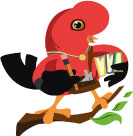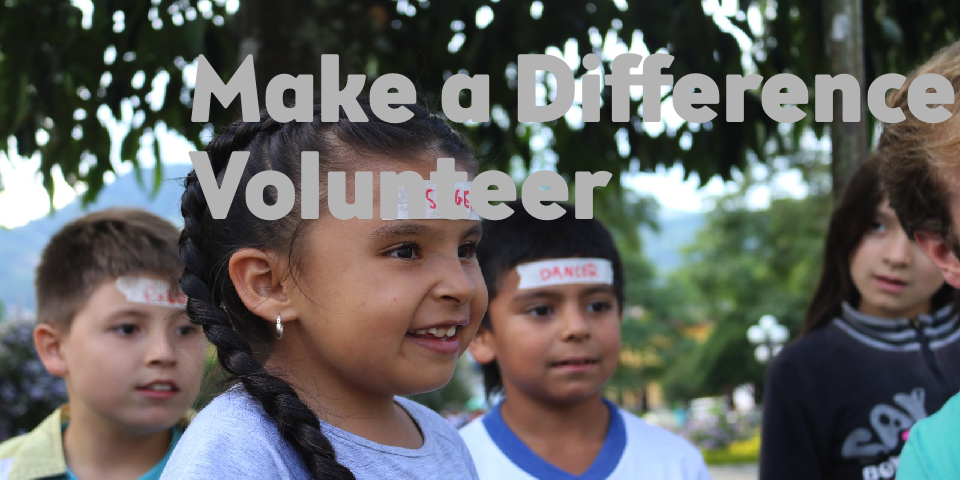When we think of school, we think of an incubator of sorts.
Drop your offspring off. Wait x years. Out pops an adult.
Growth/education happens, perhaps with some gentle prodding, at least superficially.
At 18 years of age, you are expected to at least be able to:
- read
- write
- think for yourself
- criticize
- persuade
- debate
- and socialize among your peers
- do basic mathematic operations
- and know enough about the government and the voting system to probably end up spending the rest of your life in constant disagreement with it/avoiding caring about it
But is that enough? And do we even reach these marks? I’ve met far too many people that have certainly made me think twice about how “successful” we have come as a human species in educating the next generation.
It seems like traditional educational systems have this as a goal. Teacher regurgitating information, and using clever measuring devices (like quizzes and tests) like a threat. Education happens at gunpoint.
‘The purpose of conventional education is to relay knowledge, skills, and standards of behavior which have previously been decided upon in order to prepare children for their future responsibilities.’
The authoritative figure, called teacher/professor/maestro/sensei, relays information, the only judge worthy of knowing what is and what isn’t worth learning.
Memorization is the name of the game and students are, as I expressed earlier, motivated mostly through fear.
Transmission Style – The Traditional Classroom
Think of how teaching and learning normally are supposed to occur in a classroom, transmission of knowledge/communication happens one way:
Teacher –> Student
That is to say that learning is one way.
It is the packaging of knowledge into curriculum units, with as much labelling as is possible, and complete separation of fields even when it only confuses things
- A General Science class being taught instead of separate Chemistry, Physics, Biology, Geology, Astronomy, etc. classes, leading each to being thought of as completely and confusingly separate
It means quizzes and tests, grades and passing/not passing.
Worst of all, it means a curriculum that is likely not the teachers, not the department chairs’, not the principals, or even the superintendents, but a school board in some office building off somewhere, some of them never having been educators themselves, deciding what and how a teacher should be able to teach.
When Transmission Teaching Might Be Useful/Necessary
Medical school. Law school. Biohemistry doctoral programs. A medical student definitely needs to open his ears and listen. The transmission of information very much should happen when someone is an expert in a field as demanding and “with as much at stake” as medicine.
But the same goes for many fields. There are a great number of instances when we might want to consider ourselves a tabula rasa or “blank slate” when it comes to certain things. But when we put that kind of impetus on a young child, we are setting limits to their options and potentially their entire worldview perhaps far too early.
How ACA Explorers Uses It
We must ask ourselves, as a society, what cultural, intellectual, social, philosophical, and general life values do want to impress upon young learners?
Do we want to impose them completely, giving them zero self-identify, or let them run wild and free into society without any parental or community-based guidance whatsoever?
Or perhaps a middle path would be the surest way…
ACA Explorers Values –
The Scholar, The Philosopher, The Scientist, The Explorer
As I discussed in ACA Explorers – Level One Passport and Values the ACA Explorers program, inspired from youth development programs like Boy Scouts of America and especially Camp Fire, celebrates eight values specifically that we feel aid in the growth and development necessary to make a young person thrive.

1- The Scholar
Values: Curiosity and Love of Learning
Focus: INPUT
The Scholar is focused on being curious and being exposed to quality input in order to foster a love of learning.

2 – The Philosopher
Values: Honesty and Judgement
Focus: OUTPUT
The Philosopher is focused on being honest; tasked with learning to produce quality output in order to foster an ability to fairly and appropriately judge themselves and others.
3- The Scientist
Values: Perspective and Prudence
Focus: FUNDAMENTALS
The Scientist is focused on having perspective in self-governance and prudence in self-discipline when learning the fundamentals.
4- The Explorer
Values: Courage and Creativity
Focus: MASTERY
The Explorer is focused on being courageous while practicing mastery and creative in attempts towards self-mastery.
These are values we promote in the educational classes and programs we have and the activities we do, and even built into the framework of the ACA Explorers and how they “level up”, gaining stamps in their Explorer Passports.
This, therefore, is a type of Transmission Teaching: we are preselecting certain values and valuing them above others. I think this is the perfect compromise as each explorer in turn learns what those values mean to them, and how to express them personally.
Alternative Educational Methods
While alternative might become increasingly out-of-date as more and more schools turn away from more traditional styles, it still seems a safe term to group three of the most popular alternative options:
-Montessori
-Reggio
-Waldorf
Montessori, Reggio, Waldorf
Compare
These alternative educational methods are considered a type of social constructivist school, with, as confusingly as it is titled, is basically about changing the relationship between teacher and student.
The teacher becomes more of a guide, the student a co-guide, and the transmission of knowledge becomes even circular at times. Sure, the teacher is in a privileged position of having more knowledge, but the emphasis is on letting the child develop on their own terms.
Contrast
In my opinion, these schools have more in common than not, but there are still a few interesting differences that jump out.
Montessori: “The Child is not an inert being who owes everything he can do to us, as if he were an empty vessel that we have to fill.'”
- focus is on self-sufficiency and on fostering independence early
Reggio Emilia (province in Italy): “Our task is to help children communicate with the world using all their potential, strengths, and languages, and to overcome and obstacle presented by our culture (Loris Malaguzzi)
- focus is on a ‘child realized and teacher framed’ educational style
- This is accomplished by a project-based approach
- designing projects and exploration to customize the learning to their interests
Waldorf (hotel chain): “Waldorf school education is not a pedagogical system but an art – the art of awakening what is actually there within the human being”(Rudolf Steiner)
- focus is on awakening the creative spirit within each child
- This is accomplished by a play-based free-form approach, leaving strict academic subjects until a later age than Montessori
- interconnecting math and science into creative play like music and art
The Exploratorium – Bringing Social Constructivism To Colombia
Study after study shows the benefits to these kinds of educations, with 90%+ of graduates attending university with a vast amount going on to receive Masters or Doctorate degrees.
And neither does it handcuff us from bringing in other useful methodologies. The ACA Method still guides individual projects and the frame for the educational pedagogy as a whole.
But project-based activities, while still allowing for free play, and for real ownership of learning, hits two (or maybe three!) birds with one stone.
The Physical Space and The Roles
The Exploratorium, as HQ and the physical embodiment of the ACA Explorers, incorporates elements from all three: Montessori, Reggio Emilia, and Waldorf.
These methodologies help to put meaning into the physical school as an actual space and help define the roles the teachers and students will take on.
Free from clutter. Visually appealing. Everything within a child’s reach.
Teacher as Guide/Mentor/Motivational Coach/Co-Teammate.
Student as Seeker/Interested Participant/Co-Teacher/Peer.
Subjects and activities, projects and programs the student has a real interest in.
The ACA Values being the pulse or the spirit of everything and the ACA Method being the framework or skeleton. This gives a lot of wiggle room for independent growth and autodidact learning to happen.

